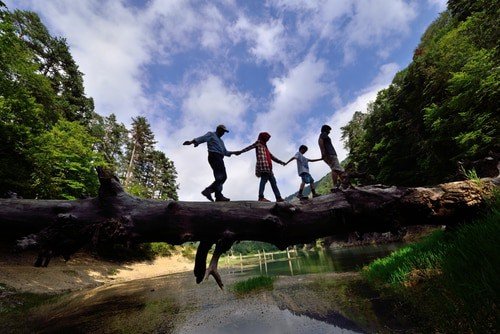Unfortunately, for millions of adults around the world, some form of trauma affects their everyday life. According to the U.S. Department of Veterans Affairs, about 6% of the population will experience Post-Traumatic Stress Disorder (PTSD) at some point in their life. While trauma is often beyond a person’s control, treating any resulting PTSD is not. Fortunately, there are a number of effective treatments available for those living with PTSD, including adventure therapy.
PTSD: Post-Traumatic Stress Disorder
The United States National Institute of Mental Health describes PTSD as a disorder that affects people who continue to experience the natural reactions a person often has during a traumatic situation. This causes them to feel stressed or frightened.
The symptoms of PTSD typically include:
- Flashbacks
- Nightmares, trouble sleeping
- Stress, feeling on edge
- Angry outbursts
- Memory loss
- Symptoms of depression
- Avoiding reminders of trauma (people, places, events, etc.)
Reactions to trauma can vary, but most often, a person will respond in one of two ways: fight or flight. They will either take steps to defend themselves or avoid it as much as possible. For many individuals, these intense reactions — like a fight or a flight reaction — will subside naturally, but for others, the event, feelings, and reactions remain. However, despite popular belief, PTSD does not always develop due to a dangerous event. PTSD can also develop as the result of several different kinds of traumatic experiences, such as the death of a loved one.
What is Adventure Therapy?
One of the many available treatments for PTSD as well as other mental health problems is adventure therapy. This form of therapy consists of talk therapy, challenges, and a change of environment for those who use it. The goals of adventure therapy are to treat mental health issues, such as PTSD, as well as provide a sense of safety, stability, and lasting change.
Adventure therapy typically consists of a group of participants, including a counselor or counselors, retreating to the wilderness or going on scheduled excursions together. Participants are encouraged to immerse themselves in the environment and engage in activities. The activities challenge participants to self-reflect and develop coping skills for whatever mental health issues affect them. The experience as a whole also helps participants develop or improve their social skills by talking and listening to others in the group.
The Benefits of Adventure Therapy for Treating PTSD
Adventure therapy offers several benefits for treating individuals with Post-Traumatic Stress Disorder, including:
1. Improved Mental and Emotional Health
By removing oneself from their everyday environment, socializing, and more, individuals who engage in adventure therapy often experience improved mental and emotional health.
2. Self-Reflection
Self-reflection is important for everyone, regardless of what issues they may or may not have. However, for anyone struggling with their mental health, self-reflection can help them discover what triggers certain mental states or PTSD. By identifying these triggers and learning more about themselves, they can become healthier mentally and physically.
3. Coping Strategies
As of right now, there is no cure for PTSD. However, this does not mean it is impossible to live with PTSD. By learning coping skills and avoiding potential triggers, individuals with PTSD can help manage their symptoms, making their lives easier.
4. Improved Social Skills
During adventure therapy, participants are surrounded not only by counselors but by others who understand exactly what they are going through. From this, participants can engage in meaningful dialogue about PTSD and enhance their social skills overall.
Adventure therapy challenges those who engage in it. It forces them to learn about themselves, others, and how to cope with the challenges PTSD presents. In doing so, participants almost always leave adventure therapy in a much better position than before they arrived.
Mental Health Treatment Near You!
Living with Post-Traumatic Stress Disorder can make life inconvenient, stressful, and even frightening. However, by engaging in adventure therapy, those living with PTSD can escape their day-to-day lives and challenge themselves and others to accept and cope with the disorder. By doing so, they can regain control, stress less, and live without fear.
For more information on the benefits of adventure therapy for treating PTSD, contact us at Knoxville Recovery Center today! Our team will be more than happy to help find the program that best suits you.











